As an avid hiker, I can attest to the importance of a hiking backpack. It’s not just a matter of carrying your gear; a good hiking backpack can make or break your entire hiking experience. In this article, I will discuss why hiking backpacks are important and what specific features make them so crucial.
First and foremost, a hiking backpack provides comfort and support. When you’re out on the trail, you’ll be carrying a lot of weight on your back, and if your backpack doesn’t fit properly or doesn’t have the right support, you can experience discomfort and even injury. A good hiking backpack will distribute the weight evenly across your back and hips, making it easier to carry your gear and reducing the risk of injury.
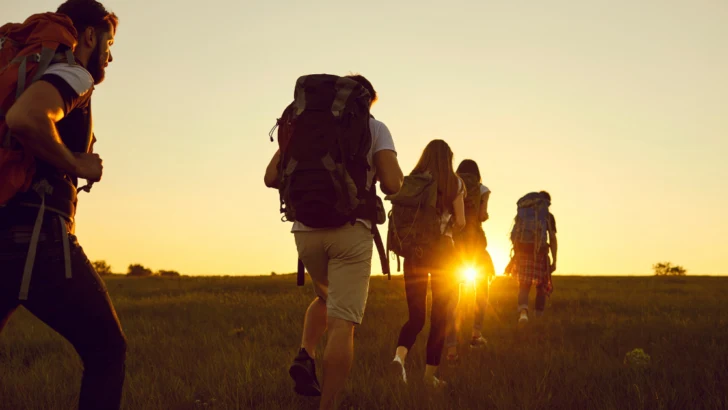
In addition to comfort and support, a hiking backpack is also essential for survival. Your backpack will carry all of your food and water, as well as any other gear you may need, such as a first aid kit, a map, or a compass. It’s important to choose a backpack that is durable and has the right features for your needs, such as multiple pockets or attachment points for trekking poles.
Key Takeaways
- A hiking backpack is essential for comfort, support, and survival on the trail.
- Look for a backpack that fits well, distributes weight evenly, and has the features you need for your specific hike.
- Consider factors such as terrain, gear, and personal preferences when choosing a hiking backpack.
Why a Hiking Backpack is Important
When planning for a hiking trip, one of the essential items to consider is a hiking backpack. As an avid hiker, I have come to realize the importance of having a reliable backpack for my outdoor adventures. In this section, I will share my thoughts on why hiking backpacks are important.
Comfort and Support
One of the primary reasons why hiking backpacks are important is for comfort and support. A good hiking backpack should fit properly and have the right support to ensure that you don’t experience discomfort or injury while hiking. When hiking, you’ll be carrying a lot of weight on your back, and a poorly fitting backpack can cause strain on your shoulders, back, and hips.
Gear Storage
Another reason why hiking backpacks are important is for gear storage. A hiking backpack provides ample space to store all the necessary gear you need for a day or multi-day hike. It’s essential to have a backpack with compartments that allow for specialized gear storage, such as trekking poles, ice axes, and hydration systems.
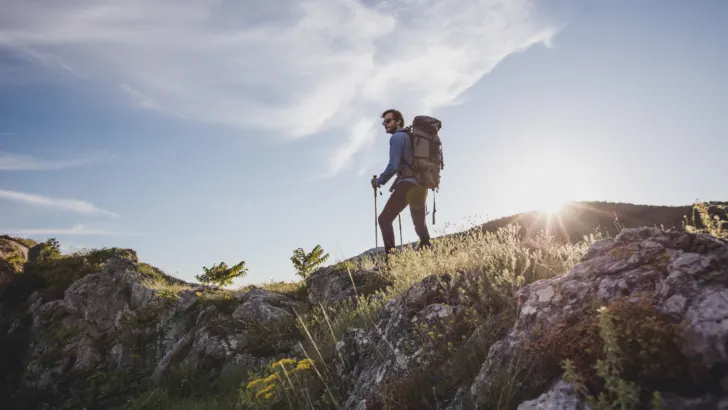
Related post: Climbing Heights: How to Tie Your Hiking Pole to the Backpack Like a Pro
Durability
Hiking backpacks are designed to withstand harsh outdoor conditions, making them more durable than regular backpacks. They are made from high-quality materials that can withstand wear and tear from rough terrain, weather elements, and heavy loads. Investing in a durable hiking backpack means that you won’t have to replace it frequently, saving you money in the long run.
Versatility
Hiking backpacks are versatile, making them suitable for different types of hikes and outdoor activities. They come in various sizes, allowing you to choose one that suits your needs, whether you’re going on a day hike or a multi-day backpacking trip. Additionally, hiking backpacks are designed to distribute weight evenly, making them comfortable to carry for extended periods.
In conclusion, hiking backpacks are essential for any hiker looking to have a comfortable, safe, and enjoyable outdoor experience. A good hiking backpack should provide comfort and support, ample gear storage, durability, and versatility.
The Importance of a Good Fit
As someone who has gone on many hikes, I can attest to the importance of having a well-fitting hiking backpack. A good fit can make the difference between a comfortable, enjoyable hike and a painful, frustrating one.
When choosing a hiking backpack, it’s crucial to consider how well it will fit your body. An ill-fitting backpack can cause a number of problems, including back pain, reduced mobility, and even blisters. Here are a few things to keep in mind when choosing the right size and fit for your hiking backpack:
- Measure your torso length: This is the distance from your C7 vertebra (the bony bump at the base of your neck) to the top of your hip bones. Most backpacks are available in different sizes based on torso length, so it’s important to get an accurate measurement to ensure a proper fit.
- Consider your hip size: Approximately 80% of a backpack’s load should be supported by your hips, not your shoulders. Make sure to measure your hip size by wrapping a flexible tape measure around the top of your hips, not your waist.
- Try on the backpack with weight: When trying on a backpack, it’s important to simulate the weight you’ll be carrying on your hike. Many outdoor stores have sandbags or other weights available for this purpose. This will give you a better idea of how the backpack will feel when you’re actually on the trail.
- Adjust the straps: Once you’ve found a backpack that fits well, take the time to adjust the straps to ensure a comfortable fit. The shoulder straps should be snug but not too tight, and the hip belt should sit comfortably on your hips.

Overall, a well-fitting hiking backpack is essential for a comfortable and enjoyable hike. Don’t overlook the importance of a good fit when choosing your next backpack.
Durability and Features
When it comes to hiking backpacks, durability is key. A high-quality backpack is an investment that will last for years. Look for backpacks made with strong materials such as nylon or polyester, and with reinforced stitching. This will ensure that your backpack can withstand the elements and rough terrain, allowing you to focus on your hike without worrying about your gear falling apart.
In addition to durability, there are several features that are essential for a good hiking backpack. Adjustable straps and buckles are a must-have. Without the ability to adjust the fit of the backpack, it can be difficult to achieve comfort. Look for backpacks with padded shoulder straps and a padded back panel for added comfort.
Another important feature to consider is the hip belt. A backpack that comes with a hip belt is an absolute necessity for a comfortable hiking experience. The hip belt helps to distribute the weight of the backpack evenly across your body, reducing strain on your shoulders and back.
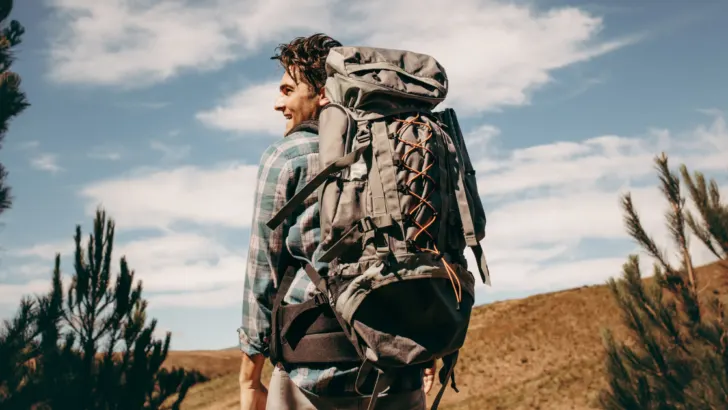
When it comes to storage, look for a backpack with plenty of compartments and pockets. This will make it easier to organize your gear and access it quickly when you need it. Some backpacks even come with a separate compartment for a hydration system, allowing you to stay hydrated on the go.
Overall, a durable and well-designed hiking backpack is an essential piece of gear for any hiker. By investing in a high-quality backpack with the right features, you can hike confidently knowing that your gear is protected and secure in any weather conditions.
The Specific Features That Make a Hiking Backpack Important
As someone who loves hiking, I cannot stress enough the importance of having the right backpack for a successful and enjoyable hike. A hiking backpack should be comfortable, durable, and able to carry all of your essentials. Here are some specific features that make a hiking backpack important:
Comfortable Fit
A good hiking backpack should fit comfortably on your back. It should have adjustable straps and buckles so you can personalize the fit of the bag. The hip belt should sit comfortably on your hips, taking the weight off your shoulders and distributing it evenly. The shoulder straps should be padded and adjustable to fit your body type.
Storage and Organization
A hiking backpack should have enough storage space to carry all of your essentials. It should have multiple compartments and pockets to help you organize your gear. It’s important to have easy access to your water bottle, snacks, and other essentials while on the trail. A hydration bladder is also a great feature to have, allowing you to stay hydrated without having to stop and take off your backpack.
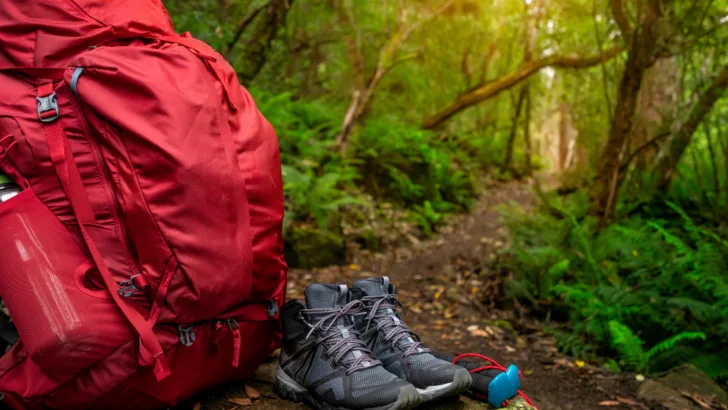
Durability and Weather Resistance
A hiking backpack should be durable and able to withstand the wear and tear of the trail. It should be made of high-quality materials that can withstand rough terrain, rain, and other weather conditions. Look for backpacks that are made of water-resistant or waterproof materials to protect your gear from getting wet.
Safety and Emergency Preparedness
A good hiking backpack should have safety features such as reflective strips and a whistle. It’s also a good idea to have a first aid kit and emergency supplies in your backpack, such as a map, compass, and extra food and water.
In conclusion, a hiking backpack is an essential piece of gear for any hiker. It should be comfortable, durable, and able to carry all of your essentials. The features listed above are just a few of the important features to look for when choosing a hiking backpack.
Tips for Choosing the Right Hiking Backpack for Your Needs
When it comes to hiking, choosing the right backpack is crucial. A poorly fitting or inadequate backpack can ruin your trip, causing discomfort, pain, and even injury. Here are some tips to help you choose the right hiking backpack for your needs:
- Consider the length of your trip: The length of your trip will determine the size of the backpack you need. For a day hike, a backpack with a capacity of 15 to 25 liters is usually sufficient. For an overnight trip, you’ll need a backpack with a capacity of 30 to 50 liters. For longer trips, you’ll need a backpack with a capacity of 50 liters or more.
- Check the fit: The fit of your backpack is crucial. A poorly fitting backpack can cause discomfort, pain, and even injury. Make sure the backpack fits snugly against your back and that the hip belt sits comfortably on your hips. The shoulder straps should be adjustable and padded, and the backpack should be adjustable to fit your torso length.
- Consider the weight: The weight of your backpack is important, especially if you’re going on a long hike. Look for a backpack that is lightweight but still sturdy and durable. A backpack that is too heavy can cause fatigue and make your hike more difficult.
- Look for features: Look for a backpack with features that will make your hike more comfortable, such as a hydration system, compression straps, and multiple pockets for organization. Consider the type of terrain you’ll be hiking on and look for backpacks with features that will make your hike easier, such as a built-in rain cover.
- Consider your budget: Hiking backpacks can range in price from $50 to $500 or more. Consider your budget and look for a backpack that fits within your price range. Keep in mind that a high-quality backpack is an investment that will last for years.

By following these tips, you can choose the right hiking backpack for your needs and enjoy a comfortable and safe hike.
Best Brands or Models of Hiking Backpacks That Are Recommended
When it comes to hiking backpacks, there are a lot of options on the market. As someone who has spent a lot of time on the trails, I have tried out a variety of brands and models. Here are some of the best hiking backpacks that I would recommend:
Osprey
Osprey is a well-known brand in the hiking world and for good reason. Their backpacks are durable and comfortable and come in a variety of sizes and styles. Some of their most popular models include the Talon, Stratos, and Atmos. The Talon is a great option for day hikes, while the Stratos and Atmos are better suited for longer trips.
Deuter
Deuter is another brand that makes high-quality hiking backpacks. Their backpacks are known for their comfort and ventilation, which is important on long hikes. The Speed Lite and Aircontact are two of their most popular models.
Gregory
Gregory is a brand that is known for its backpacks that are designed specifically for women. Their backpacks are comfortable, adjustable, and come in a variety of sizes. The Deva and Jade are two of their most popular models.
REI
REI is a brand that is known for its high-quality outdoor gear, and its backpacks are no exception. Their backpacks are durable and comfortable and come in a variety of sizes and styles. The Trail 25 and Trail 40 are two of their most popular models.
When it comes to hiking backpacks, it’s important to find one that fits well, is comfortable, and can hold all of your gear. These brands and models are some of the best on the market and are definitely worth considering.
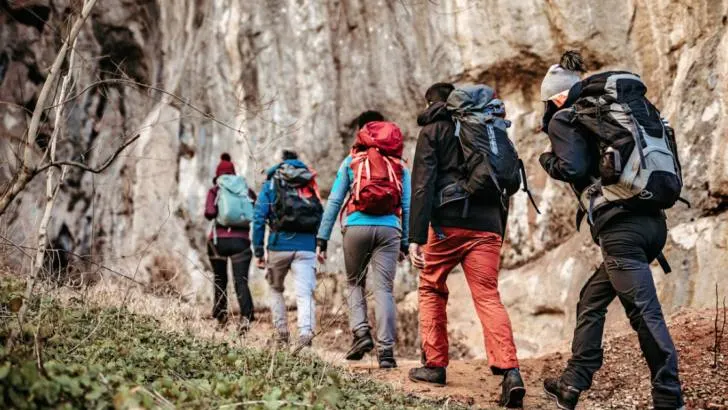
Consider the Type of Terrain You Will Be Hiking On
When choosing a hiking backpack, it’s essential to consider the type of terrain you’ll be hiking on. Different terrains require different types of backpacks. Here are some things to keep in mind:
Terrain Type
The type of terrain you will be hiking on will determine the type of backpack you need. For example, if you’ll be hiking on mild terrain, light hiking shoes should work just fine. However, if you are going to traverse tough mountainous or snowy terrain, you may want to invest in more rugged mountaineering boots. If your hike falls somewhere in between, backpacking boots with a solid sole can handle a range of landscapes.
Backpack Capacity
The type of terrain you’ll be hiking on will also determine the capacity of the backpack you need. If you’re going on a short day hike, a small backpack with a capacity of 20-30 liters should be sufficient. However, if you’re planning a longer hike that requires camping gear, a backpack with a capacity of 50-70 liters is more appropriate.
Features
Different types of terrain require different features in a backpack. For example, if you’ll be hiking in wet conditions, look for a backpack with a waterproof cover or a waterproof lining. If you’ll be hiking in hot conditions, look for a backpack with a mesh back panel to help keep you cool.
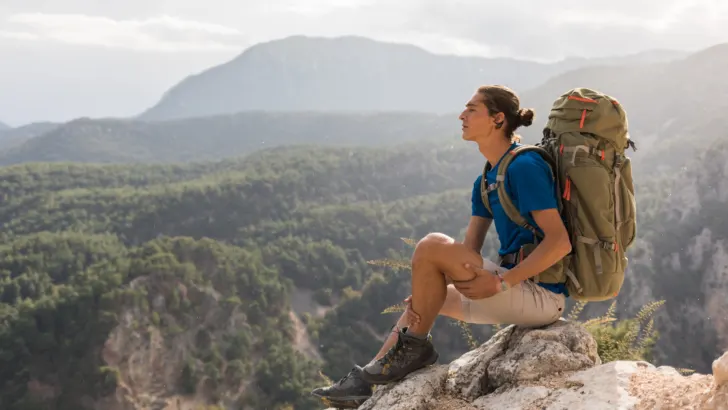
Weight Distribution
The type of terrain you’ll be hiking on will also affect how you distribute the weight in your backpack. If you’ll be hiking on flat terrain, you can distribute the weight evenly between the shoulder straps and the hip belt. However, if you’ll be hiking on steep terrain, you’ll want to shift more weight to the hip belt to help maintain your balance.
In conclusion, when choosing a hiking backpack, it’s essential to consider the type of terrain you’ll be hiking on. Different terrains require different types of backpacks, and it’s important to choose the right one to ensure a comfortable and safe hike.
Consider the Amount of Gear You Will Be Carrying
When choosing a hiking backpack, it is important to consider the amount of gear you will be carrying. This will help you determine the size and capacity of the backpack you need.
If you are planning a short day hike, a backpack with a capacity of 12-20 liters should be sufficient to carry your essentials such as water, snacks, and a first aid kit. However, if you are planning a longer hike or backpacking trip, you will need a larger backpack with a capacity of 30-70 liters to carry your gear, food, and clothing.
It is also important to consider the weight of your gear when choosing a backpack. As a general rule, you should aim to carry no more than 20% of your body weight in your backpack. This means that if you weigh 150 pounds, your backpack should not weigh more than 30 pounds.
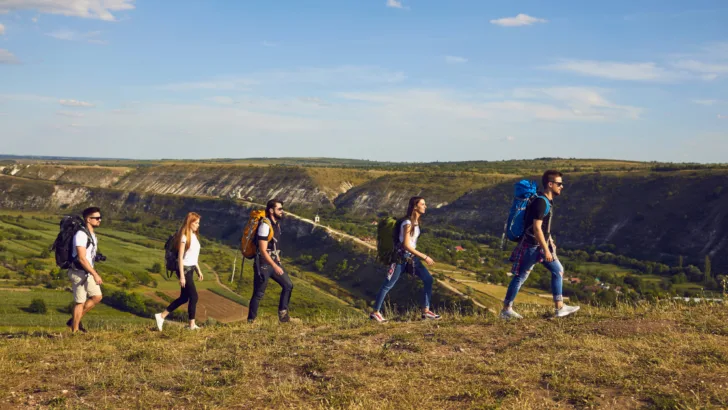
To help you determine the size and capacity of the backpack you need, you can create a gear list and estimate the total weight and volume of your gear. This will help you choose a backpack that is the right size and weight for your needs.
In addition to the size and capacity of the backpack, you should also consider the features and design of the backpack. Look for a backpack with comfortable shoulder straps, a padded back panel, and a waist belt to distribute the weight of your gear evenly. You may also want to consider features such as hydration compatibility, gear loops, and compression straps to help you organize and carry your gear more efficiently.
Consider Your Own Personal Preferences
When it comes to choosing a hiking backpack, it’s important to consider your own personal preferences. Everyone is different, and what works for one person may not work for another. Here are some things to keep in mind when making your decision:
- Size: Consider how much gear you’ll be carrying and choose a backpack that can accommodate it all. Keep in mind that a larger backpack may be more comfortable for longer hikes, but it will also be heavier.
- Fit: Make sure the backpack fits properly and is comfortable to wear. Look for a backpack with adjustable straps so you can customize the fit to your body.
- Style: There are many different styles of hiking backpacks, from minimalist daypacks to large backpacking packs. Consider the type of hiking you’ll be doing and choose a backpack that fits your needs.
- Features: Look for features that are important to you, such as hydration compatibility, multiple pockets, or a built-in rain cover.
- Brand: While the brand isn’t everything, it’s worth considering when choosing a hiking backpack. Look for reputable brands that have a history of making quality backpacks.
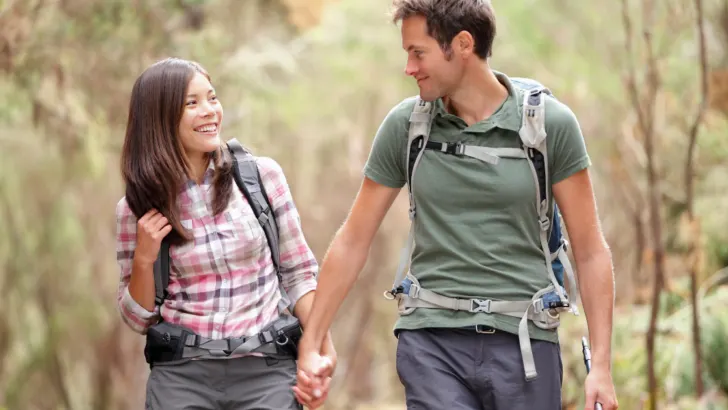
Overall, choosing a hiking backpack is a personal decision. Take the time to consider your own preferences and needs, and don’t be afraid to try on several different backpacks before making your final decision.
Try On Different Backpacks to Find One That Fits Well and Is Comfortable
When it comes to hiking, having a backpack that fits well and is comfortable is essential. Not only will it make your hike more enjoyable, but it will also prevent injuries and strains. Here are some tips for finding the perfect backpack for your next hiking trip.
First, it’s important to try on different backpacks to find one that fits well. Backpacks come in different sizes, so it’s important to find one that fits your body type. Most backpacks come in small, medium, and large sizes. To determine the right size for you, measure your torso length and use the manufacturer’s sizing chart.
When trying on backpacks, make sure to adjust the straps to fit your body. The shoulder straps should be snug but not too tight, and the hip belt should sit comfortably on your hips. The backpack should also sit high on your back and not sag down.

Next, look for a backpack that is comfortable. A good backpack should distribute the weight evenly across your back and hips. Look for backpacks with padded shoulder straps and hip belts, as well as a breathable back panel to prevent sweating.
It’s also important to consider the type of hiking you’ll be doing. If you’re going on a day hike, a smaller backpack with less padding may be sufficient. However, if you’re planning a multi-day hike, a larger backpack with more padding and support is necessary.
In conclusion, finding the right backpack is crucial for a comfortable and enjoyable hiking experience. Take the time to try on different backpacks and find one that fits well and is comfortable. Your body will thank you for it!
Read Reviews of Hiking Backpacks Before You Buy One
As someone who loves hiking and exploring the great outdoors, I know how important it is to have the right gear. One of the most essential pieces of equipment for any hiker is a good backpack. It’s important to choose a hiking backpack that is comfortable, durable, and fits your needs.
Before you make a purchase, I highly recommend reading reviews of hiking backpacks. There are many websites and forums where you can find honest and detailed reviews from other hikers who have tested out different backpacks.
For example, GearJunkie has a list of the best hiking backpacks of 2022, which includes the Deuter Speed Lite as the best overall backpack. This pack is versatile and has a lot of simple features, such as a main compartment and two mesh pockets on the sides.
Outdoor Life has a list of the best hiking backpacks of 2023, which emphasizes the importance of having a durable and comfortable backpack. They recommend the Osprey Atmos AG 65 as a top pick for its adjustable suspension system and comfortable fit.
It’s also important to consider the type of hiking you’ll be doing and the features you need in a backpack. For example, if you’ll be hiking in tough elements, you may want a backpack that is waterproof and has a rain cover. If you’ll be doing a lot of day hikes, you may want a smaller and lighter backpack.
By reading reviews and considering your own needs, you can find the perfect hiking backpack for your adventures.
Conclusion
In conclusion, a hiking backpack is a crucial piece of gear for any hiking trip. It provides comfort, support, organization, and safety for hikers. When choosing a hiking backpack, it is important to consider factors such as size, weight, durability, and weather resistance.
One of the most important reasons to invest in a good hiking backpack is for comfort and support. A well-designed backpack will distribute the weight of your gear evenly across your body, reducing strain on your back, shoulders, and hips. This can make a huge difference in your overall comfort and enjoyment on the trail.
Another key benefit of a hiking backpack is its storage and organization capabilities. A good backpack will have multiple compartments and pockets to help you keep your gear organized and easily accessible. This can save you time and frustration on the trail, as you won’t have to dig through a messy pile of gear to find what you need.
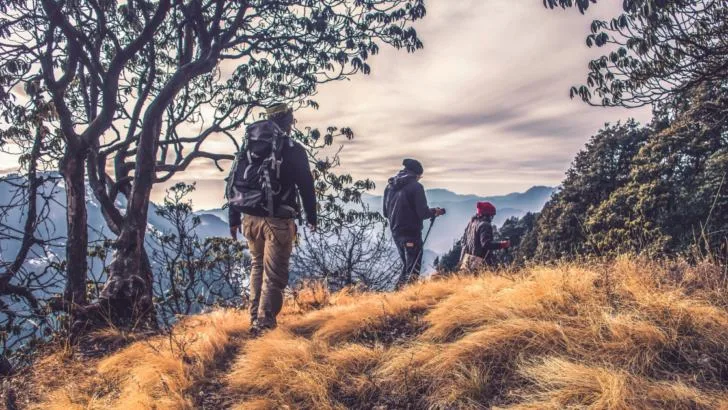
Durability and weather resistance are also important factors to consider when choosing a hiking backpack. A good backpack should be able to withstand the rigors of the trail, including rain, wind, and rough terrain. Look for backpacks made from high-quality materials that are designed to last.
Finally, a hiking backpack can also provide important safety and emergency preparedness features. Many backpacks come equipped with features such as reflective strips, whistle buckles, and hydration systems. These features can help keep you safe and prepared in case of an emergency on the trail.
Overall, investing in a good hiking backpack is a wise decision for any hiker. It can provide comfort, support, organization, and safety, making your hiking experience more enjoyable and worry-free.
Resources
Frequently Asked Questions
What are the benefits of using a backpack for hiking?
A backpack is an essential piece of gear for any hiker. It allows you to carry all the necessary items you need for your hike, such as water, food, clothing, and shelter. A backpack also distributes the weight of your gear evenly across your back, which reduces the strain on your body and makes your hike more comfortable.
What features should I look for in a hiking backpack?
When choosing a hiking backpack, there are several features to consider. Look for a backpack with adjustable straps, a padded hip belt, and a ventilated back panel. A backpack with multiple compartments and pockets will also help you stay organized on the trail. Additionally, consider the backpack’s capacity, weight, and durability.
How does a hiking backpack differ from a regular backpack?
A hiking backpack is specifically designed for outdoor activities, whereas a regular backpack is often designed for everyday use. Hiking backpacks typically have features such as hydration compatibility, trekking pole attachments, and rain covers. They are also made with durable, lightweight materials to withstand the rigors of the trail.
Can a regular backpack be used for hiking?
While a regular backpack can be used for hiking, it may not be the best option. Regular backpacks are often not designed for outdoor activities and may not have the necessary features for a comfortable and safe hike. Additionally, regular backpacks may not be as durable as hiking backpacks and may not hold up well in harsh outdoor conditions.
What size backpack is best for multi-day hiking trips?
The size of your backpack will depend on the length of your trip and the amount of gear you need to carry. For multi-day hiking trips, a backpack with a capacity of 50-70 liters is usually sufficient. However, it’s important to pack efficiently and only bring the necessary items to keep your backpack as lightweight as possible.
What are the advantages of investing in a high-quality hiking backpack?
Investing in a high-quality hiking backpack is a smart choice for any hiker. A high-quality backpack will be more durable and will last longer than a cheaper backpack. It will also be more comfortable to wear, with features such as padded straps and a ventilated back panel. Additionally, a high-quality backpack will have more features and compartments to help you stay organized on the trail.
